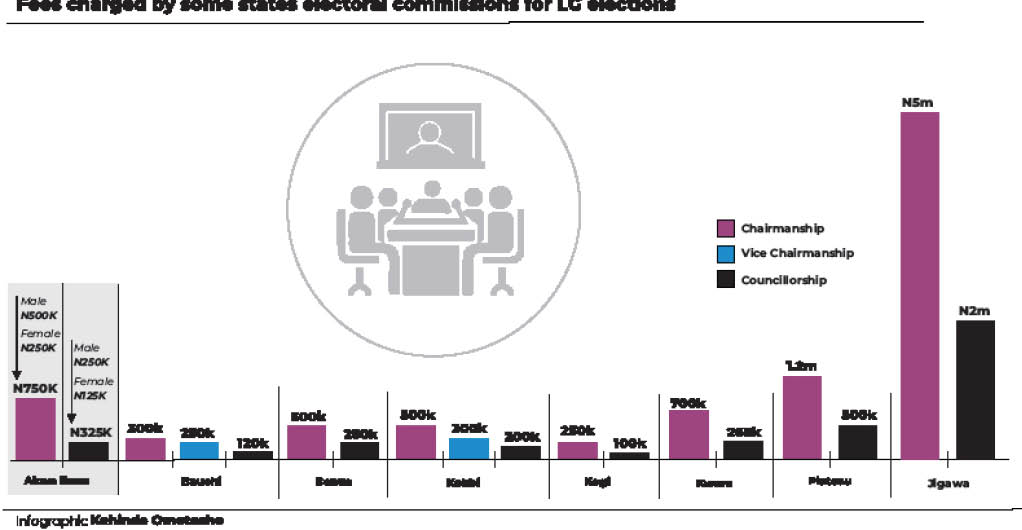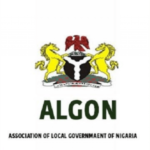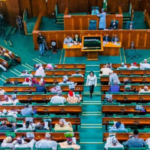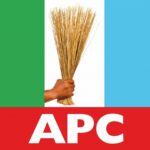Opposition parties are voicing strong opposition to the decision by several state electoral commissions to impose fees on candidates vying for positions in the upcoming local government elections.
Following a recent Supreme Court judgment that granted local government autonomy, many states have scheduled council elections. However, the introduction of additional charges by state electoral bodies, on top of the fees for expression of interest and nomination forms charged by the political parties, has sparked controversy.
Critics argue that these new fees contradict the practices of the Independent National Electoral Commission (INEC), which conducts all other elections in Nigeria without imposing such financial burdens on candidates. The predictability of state electoral commission-conducted elections has long been viewed as an obstacle to genuine local government autonomy, with some advocating for the transfer of their functions to INEC. The Senate is even considering a bill to create a new electoral body to oversee local government elections, amid complaints that state commissions largely act as rubber stamps for state governors.
Despite the ongoing debate on the role and viability of state electoral commissions, some have introduced or re-activated candidate fees, a move that political analysts and opposition parties condemn as an attempt to disenfranchise capable candidates and further monetise the electoral process.
- Nigeria wasting rice, yam, fish amid food crisis – Report
- NIGERIA DAILY: What’s Next For Banks After Mergers
Jigawa State
The state electoral commission in Jigawa has asked those interested in contesting for the chairmanship position to pay N5 million, while those to contest for councillorship are to pay N2 million.
Reacting to this, the PDP chairman in the state, Ali Diginsa, said the party had decided to boycott the poll because of these exorbitant fees.
“The estimated cost of what the PDP is supposed to pay is well over N709 million; if 10 political parties decide to buy the forms, SIEC will get a staggering N79 billion or more. This is far above their approved budget, seeing that SIEC is not a profit making venture,” he said.
Plateau State
In Plateau State, the cost of a nomination form for chairmanship is set at N1.2 million, while councillorship forms cost N500,000 ahead of the October 9 election. According to a statement by the head of media for the Plateau State Independent Electoral Commission (PLASIEC), Koro Yakubu, nomination forms will be provided free of charge to people living with disabilities. He justified the fees as reflective of the country’s current economic realities.
Opposition parties, however, find the costs unreasonable. The Chairman of the All Progressives Congress (APC) in Plateau State, Hon Rufus Bature, remarked that “The charges for the nomination forms are very high and beyond the reach of the opposition parties. These high charges are obviously intended to disenfranchise non-ruling party candidates.”
Kebbi State
In Kebbi State, the electoral commission has set fees of N500,000 for chairmanship, N300,000 for vice chairmanship, and N200,000 for councillorship positions. The spokesman for the Kebbi State Independent Election Commission (KESIEC), Muhammed Kaura, defended the fees, stating they are necessary to fund the commission’s activities in addition to state government support. He referenced provisions in the law establishing KESIEC that allow for such charges.
However, the Peoples Democratic Party (PDP) Chairman in Kebbi, Alhaji Bello Usman Suru, strongly disagreed, arguing that “INEC has conducted elections for decades without charging candidates or political parties such fees. KESIEC’s decision grossly violates the freedom of choice of candidates, political parties, and the electorate.”
Kwara State
In Kwara, the state independent electoral commission (KWSIEC) has required chairmanship candidates to pay N350,000 for a form and another N350,000 as tax, totalling N700,000. Councillorship candidates must pay N100,000 for a form and N168,000 in taxes, summing up to N268,000. These amounts are to be paid to the Kwara State Internal Revenue Service (KW-IRS).
Opposition parties have described the fees as unconstitutional and a ploy to fund the commission through the backdoor. PDP Publicity Secretary Olusegun Adewara stated, “It is a plot to disenfranchise our members. PDP has paid over N70 million to KWIRS on behalf of all its candidates.”
Bauchi State
Opposition parties in Bauchi State have also condemned the high fees imposed by the Bauchi State Independent Electoral Commission (BASIEC) for the August 17 local government polls. Chairmanship candidates are required to pay N250,000 plus an administration fee of N50,000, totalling N300,000. Deputy chairmanship candidates are charged N200,000 plus N50,000, while councillorship candidates must pay N100,000 plus N20,000.
The Peoples Redemption Party (PRP) in Bauchi, through its secretary, Hon. Abdulazeez Haruna, questioned why BASIEC is charging for forms when INEC does not, urging the commission to scrap the fees to ensure a level playing field.
Conversely, the Social Democratic Party (SDP) announced its withdrawal from the elections, citing a lack of credibility in the process. SDP Secretary, Comrade Nasir DanBauchi, accused BASIEC of deliberately shutting out the opposition by violating the 2008 Electoral Law and imposing unjustifiable fees.
Akwa Ibom State
In Akwa Ibom State, a circular dated August 6 announced that candidates for chairmanship and councillorship positions must pay N500,000 and N250,000 respectively, with women paying N250,000 and N125,000. Elder Aniedi Ikoiwak, Chairman of the Akwa Ibom State Independent Electoral Commission (AKISIEC), stated that these fees had already been programmed in the 2024 state budget as part of the internally generated revenue for local government elections.
Kogi State
In Kogi State, candidates for LG chairman or councillor must pay N250,000 and N100,000, respectively, ahead of the October 21 polls. Kogi State Independent Electoral Commission (KOSIEC) Chairman, Mamman Nda Eri, justified the fees, stating that Kogi is one of the states with the lowest charges, comparing it to Zamfara State, where chairmanship forms cost N3 million and councillorship forms N1 million.
However, Mohammed Kabir Abdullahi, Chairman of the Conference of Nigeria Political Parties (CNPP) in Kogi, stated, “We reject the planned sale of forms by SIEC. It is another ploy to disqualify some candidates in the coming elections.”
Benue State
The Benue State Independent Electoral Commission (BSIEC) has set fees of N500,000 for chairmanship candidates and N250,000 for councillorship candidates ahead of the October 5 elections in the state’s 23 LGAs, according to Information Officer Ngodoo Tyoyem.
Charges absurd, threat to democracy – Prof. Kari
Reacting to these developments, Professor of Political Sociology at the University of Abuja, Abubakar Kari, described the actions of the state electoral commissions as “Abnormal, absurd, and a threat to democracy.”
He criticised the commissions for their lack of independence and credibility, arguing that the imposition of fees further monetises the electoral process and excludes smaller parties. Prof Kari warned that such measures could lead to widespread disillusionment and voter apathy.
“State electoral commissions are supposed to be truly independent, driven by fair play and justice. Instead, they have introduced money as a deliberate attempt to restrict the political space and exclude people, particularly from smaller parties. This can even be called extortion,” Prof Kari said.
By Saawua Terzungwe (Abuja), Ismail Adebayo (Birnin Kebbi), Tijani Labaran (Lokoja), Hope Abah (Makurdi), Yusufu Aminu Idegu (Jos), Hassan Ibrahim (Bauchi), Iniabasi Umo (Uyo) & Mumini Abdulkareem (Ilorin)

 Join Daily Trust WhatsApp Community For Quick Access To News and Happenings Around You.
Join Daily Trust WhatsApp Community For Quick Access To News and Happenings Around You.


